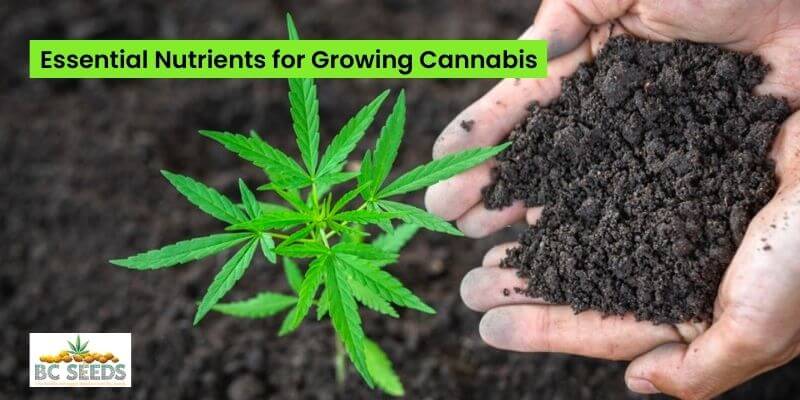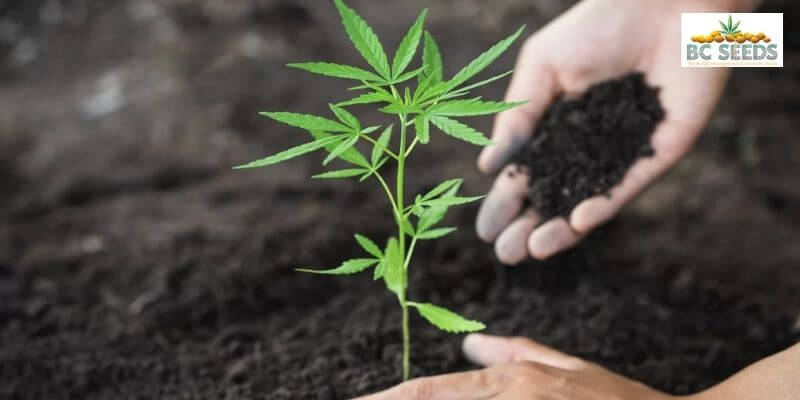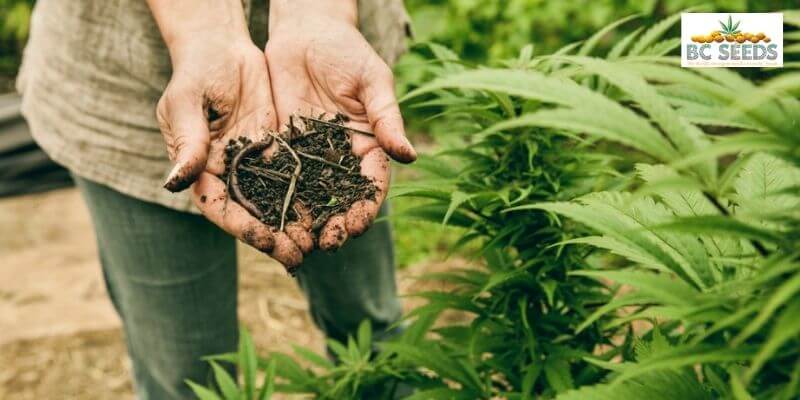Essential Nutrients for Growing Cannabis

Experienced or not, choosing the best nutrient for your cannabis plant can be confusing. This is because of the numerous options available in the market. The options can be overwhelming, even if they are good. However, you can still be a successful cannabis grower if you know the specific nutrients your plant requires.
Essential Nutrients for Growing Cannabis
The essential nutrients required for the growth of cannabis are in three categories – essential macronutrients, essential secondary nutrients, and essential micronutrients. Macronutrients are needed in large quantities for the growth of cannabis, essential secondary nutrients in small quantities, and essential micronutrients in even smaller quantities.
However, it must be noted, that all nutrients are essential to crop production and plant health.
(1) Essential macronutrients:
Macronutrients are the essential group of nutrients needed in large quantities by the cannabis plant. Some of these nutrients need to be added to the soil, while others are provided by the environment. Carbon (C), Hydrogen (H), and Oxygen (O) are essential nutrients required in large quantities. They are provided by rain and air.
Three other essential macronutrients that can be added to the soil are nitrogen (N), phosphorus (P), and potassium (K). You will often find three numbers on the packaging of most commercial formulations of liquid or dry fertilizer. The numbers indicate the percentage by volume of the nutrients N, P, and K.
Each nutrient performs different functions in the growth of the cannabis plant. However, they are all vital. Nitrogen is needed for protein production, foliage development, and plant growth. It is essential to photosynthesis and necessary to the chlorophyll molecule which gives the cannabis plant its green color.
Phosphorus is essential for seed, flower, and root development. It is also required to transfer energy between cells and throughout the cannabis plant. Potassium aids in the absorption of water and also regulates the closing and opening of stomata. It is also required for Adenosine Triphosphate (ATP). ATP drives many of the processes in living cells.
The amounts of essential macronutrients needed by the cannabis plant also depend on the stage of its development. The plant needs higher quantities of nitrogen in the bud-forming and vegetative stages than during the flowering stage. The cannabis plant needs phosphorous more in the flowering stage. Potassium is needed at about half the level of nitrogen in the vegetative phase of development.
(2) Essential secondary nutrients:

For the proper development of the cannabis plant, these nutrients are required to perform a wide variety of critical functions. They are mostly complementary components to other functions and nutrients. They do not have specific roles but are still needed for root and plant growth.
Calcium is necessary for transporting other nutrients. It also aids in the absorption of nutrients. Magnesium is a key component of chlorophyll, making it important for photosynthesis. It is also necessary for the transportation and metabolism of nutrients throughout the soil. Sulfur assists in plant transpiration and metabolism too. It aids in transporting chlorophyll and other nutrients.
The fact that essential secondary nutrients are needed in lesser amounts to assist in the development and proper growth of healthy cannabis does not make them less important. The same is true for the amounts of micronutrients needed for growing cannabis.
(3) Essential micronutrients:
The essential micronutrients represent elements and minerals that are not available in abundance on earth. As a result, they are required in much smaller amounts than either essential macronutrients or secondary nutrients. However, they are still necessary and important to plant life and growing a healthy cannabis plant.
Some of the essential micronutrients are manganese (Mn), boron (B), copper (CU), zinc (Z), iron (Fe), and molybdenum (Mo). Just as it is with other essential nutrients, micronutrients perform unique functions. They may also assist in the processes and functions of the other nutrients.
Manganese is an important component of the photosynthesis process and chlorophyll production. It also assists enzyme interactions. Boron helps in transporting calcium and is also necessary for the absorption of Zinc. It aids in the growth and development of root tips.
Copper is necessary for the development of the proteins in the cannabis plant. It also aids to strengthen the branches and stems of the plant. Zinc helps in the development of branches, leaves, and stems. More Zinc will be needed in large quantities as the plant matures. Iron is necessary for the production of chlorophyll. Its deficiency is often noticeable in the yellowing of the leaves between the veins.
Molybdenum aids in processing nitrogen. Aside from these essential nutrients, selenium (Se), chlorine (Cl), silicon (Si), and cobalt (Co), are other trace minerals thought to be vital to the growth of the cannabis plant. Generally, these other trace elements are important to support plant life.
Effectively Using Cannabis Nutrients

The symbols of these three elements are generally listed by manufacturers as N-P-K. You must also know the correct dosage before applying these products to your plant. The amount of essential nutrients needed by your cannabis plant also depends on your growing method.
Conclusion
Generally, you should use a product that contains these essential nutrients when growing cannabis. This will ensure that you get the best yield. It is also important that you use quality and compatible products to help you get the best from your growing techniques.

Leave a Comment